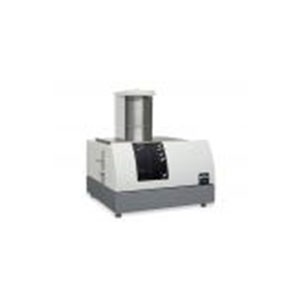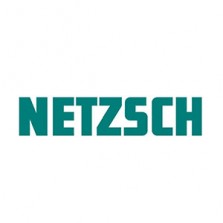Simultaneous Determination of Seebeck Coefficient and Electrical Conductivity
To find out more details, please fill in the request form below.
Ask for more information
+40 21 255 31 32
The optimization of energy efficiency is an important issue in the 21st century. In many industrial applications (melting furnaces, drying plants, incineration plants, power plants, etc.), a high amount of heat energy remains unused. Waste heat is also generated in many other areas – from automobiles to day-to-day life.
The conversion of this waste heat into electrical power is one of the most important challenges in the field of thermoelectrics. Such results are achieved by means of thermoelectric generators, the effectiveness of which depends significantly on the quality of the thermoelectric material.
To develop suitable materials, it is essential to have knowledge about the thermophysical properties which describe the efficiency (ZT value, figure of merit) of the materials, as follows:
S = Seebeck coefficient or thermoelectric potential of the material [µV/K]
σ = electrical conductivity of the material [S/cm]
λ = total thermal conductivity of the material [W/(m·K)]
T = absolute temperature
In order to be deemed suitable, thermoelectric materials should be characterized by high electrical conductivity, a large Seebeck coefficient and low thermal conductivity. The extent to which it will be possible to use thermoelectric generators in the future will depend upon the performance of the materials.
Effective immediately, NETZSCH is offering the SBA 458 Nemesis, with which the Seebeck coefficient and electrical conductivity can be measured simultaneously.
Instruments for the determination of thermal conductivity, thermal diffusivity, cp determination and density are also included in the NETZSCH product range. NETZSCH thus offers a complete solution for determining the ZT value.
SBA 458 Nemesis®
Simultaneous Determination of Seebeck Coefficient and Electrical Conductivity
A Measurement Setup for Varied Sample Geometries
The SBA 458 Nemesis® is heralded for its unique measurement setup, which accomodates more sample geometries than usually for this technique. Measurements can be carried out at temperatures up to 1100°C.
Quick Start to Measurements – Convenient Sample Change
Changing samples is accomplished quickly and easily by hand, without any tools. By using sheathed thermocouples sticking of the sample to the electrodes is avoided.
Integrated Quality Check – Outstanding Two-Heater System
The SBA 458 Nemesis® has two heavy systems that are employed in an alternating manner for each temperature step. Deviations from linearity and hysteresis due to inaccurate measurement can be immediately observed before and during the measurement.
Highly Reliable and Rugged Design – Avoiding Diffusion Problems
The thermocouples are firmly anchored and are immobilized during the measurements by a defined contact force resulting from the mass and the cold spring. Sheating of the thermocouples prevents diffusion from cementing them to the sample.
No Distance Determination Required
Since the thermocouple positions are fixed, the cumbersome process of determining their distance before each measurement is eliminated. Eliminating this potential source of error in determining electrical conductivity increases the precision and reproducibility of the results.


